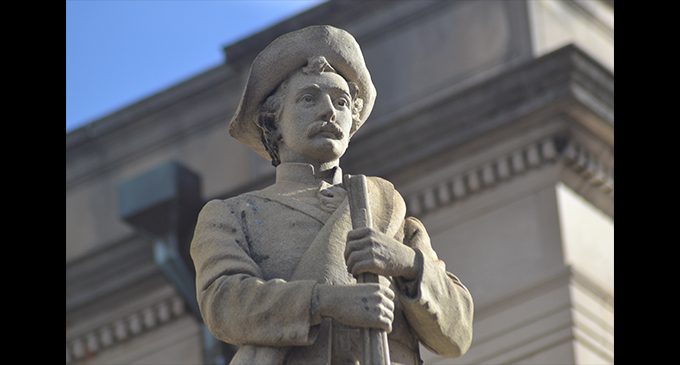Ministers’ Conference president speaks on monument removal

The Confederate statue that has been the topic of much debate over the past several months has been removed from downtown Winston-Salem. There were supporters on both side of the equation. Tembila Covington, president of the Ministers’ Conference of Winston-Salem and Vicinity (MCWSV), wanted to weigh in on the subject.
The MCWSV has been very vocal in their opposition to the statue and Covington recently spoke with The Chronicle about the subject.
Question: Give me your thoughts on the removal of the statue.
Answer: I am elated that negotiations did rule in our favor after a year-long table discussion with the mayor and city manager to where we have a historic moment of the removal of this Confederate monument. It had a stigma of oppression, slavery and racism. We are truly happy to see that it has been removed from that site so that we can focus on greater things and make change in the city to improve the lifestyle for everyone.
Question: What do you say to those individuals and organizations that were upset at the moving of the statue?
Answer: History is made every moment of the day, so I would have to say that history has been recreated, so that the history of slavery and the pride of racism are no longer monumentalized. So, we understand to them it may have a historical connotation of inheritance, but it’s also a connotation of privilege, which is one that by far, black, brown and tan people find themselves having to fight against in every venue that we are partakers of. It is not that their history is not important to them, but because history is constant, it has been recreated and revolving around a perspective that we are a diverse people and more than just one and that the elite, as they would call themselves, or the privileged as we see them, are no longer that. We are a city of one regardless of color, we are all part of the city and we should have equal parts in representation for the greater good of everyone. We have now a city that is not looking down on the marginalized, but rather it’s giving a hand up to those who have been oppressed for a long time.
Question: What does it say about the city of Winston-Salem and city officials that heard the plea of those who felt oppressed by the statue and did their due diligence to have it removed?
Answer: I think it shows the change in times that they are sensitive to what the people are saying. Again, at some point in time, it was about listening to those who had the most money or those who were considered the elite, but now it’s saying they are more sensitive to listening to the entire city of Winston-Salem, instead of just a few.









